Hi how are you? Today, I’d like to introduce you to a handsome gardener from Sweden, Tatsumasa Murasame who is gaining increasing attention in Japan.
He was born on July 25, 1988, in Sweden, his profession is a gardener and an actor.
Recently, he published a photo essay titled “I am Murasame Tatsumasa” (Shinchosha), which summarizes his life story of learning Japanese on his own as a young Scandinavian Japan enthusiast and making his way with his innate determination.
We asked the 33-year-old, who loves Japanese culture, about his “Japanese-style living” in a Japanese house built around 60 years ago and his future prospects as an actor.
Contents
What was it about Japan that made him a Japan fan?
His interest in Japan began when he was around 15 years old. His “encounter” with Japanese history came when he studied Japanese history in a world history class.
From there, he decided to learn Japanese, starting with memorizing Japanese words using an English-Japanese dictionary. At the time, he was seen as a “geek” by those around him.
“I’ve always had a fundamental desire to get out of the environment I was in since I was a child. Also, I loved history and culture, and when I was thinking that I wanted to go somewhere different from Europe, where I grew up, studying Japanese history at school happened to be the trigger.
Not only the history of the Warring States period but also the unique way of thinking in Japan fascinated me a lot.
So, I thought about what I could do first and decided to buy a dictionary. I didn’t socialize with anyone and brought a dictionary with me everywhere, studying by myself, so I was considered a weirdo (laughs).
But I was clear about what I wanted to do, so it didn’t bother me at all.”
Using internet chat rooms, he engaged in practical use of the Japanese language and managed to arrange a three-month homestay in Japan during his second year of high school.
“I thought that without both input and output, I wouldn’t be able to learn the language. Sweden is one of the countries where IT is highly advanced globally, and despite growing up in the countryside, we had a good internet environment.
Through the computer, I could access a lot of information about Japan, communicate through chat, and improve my Japanese even when I wasn’t in Japan.
I didn’t go on a study abroad program, but I was able to find a homestay. It was more like destiny than me finding it.
Through chat, they felt my motivation and passion, and they invited me. When you’re passionate about something, people tend to gather around you and offer a helping hand. I realized that if you have passion, paths open up.”
In addition to enjoying his life during the homestay, he also participated in “club activities” at a nearby high school and experienced his youth. He had previously been involved in American football in his hometown in Sweden.
“My homestay was in Yokohama, so I often went to Kamakura. I wanted to experience club activities unique to Japan, which Sweden didn’t have.
What brought him to be a gardener?
He entered the world of landscaping at the age of 23, after coming across a job advertisement by chance.
“It was also strange how I was drawn to it in a way. I happened to see a job advertisement in a magazine, and it was for part-time work at a landscaping company.
I started because I wondered what landscaping was, but I found out that there were many unique aspects to the profession of a traditional gardener in Japan.
The beauty derived from nature, wabi-sabi, and the ability to interact with nature naturally were the most attractive aspects for me. When I opened that door, it turned out to be what I had wanted to do.” It was a matter of fate that I was able to join.
His part-time work in landscaping lasted for a year, and afterward, he met his master, Gou Kato, in Aichi Prefecture’s Nishio City, and apprenticed there for five years. He learned the trade in the traditional way, by observing his master’s work.
This was a turning point for me. I had been searching for opportunities in the Mikawa region, where landscaping and the culture of planting trees have been thriving since ancient times.
I had almost given up, but it was my master who picked me up. He had a style of ‘learning by watching,’ and it was more about me actively grabbing opportunities rather than being taught and nurtured.
I believe that there are many such aspects in traditional professions that are related to this mindset.”
As his work in the media gradually increased, he decided to change his environment and relocate to the Kanto region. On the last day he left his master, who was strict about work but kind-hearted, he shared a memorable episode.
“On that day, we had a half-day job that was lighter than usual. We had lunch together, and when it was time for me to leave, my master accompanied me all the way to the house by taking a back road.
Inside, I thought, ‘Oh, he’s seeing me off.’ After I said, ‘Take care,’ I saw my master crying, his master shed tears when they parted.
My master rarely showed such emotions, so I was surprised.
At the same time, I realized, ‘My master really cared about me.’ I understood it at the very end.”
When he obtained Japanese citizenship and chose his Japanese name, he received the character “剛” (Takeshi) from his respected master.
His name before naturalization was Jacob Sebastian Björk.
He eventually became an independent gardener. Currently, he balances landscaping work with media appearances. As someone responsible for passing on Japanese culture, what are his thoughts on the future?
“My core belief is that I want to preserve Japanese gardens and convey the beauty of Japanese culture. I want to continue honing my skills and deepening my knowledge.
I believe that the Japanese aesthetic is about appreciating imperfection, incompleteness, and non-permanence in the process from birth to death.
It’s about constantly changing over time. It’s also about seasonal awareness and valuing every single moment as a unique encounter. I want to continue creating gardens with this in mind.”
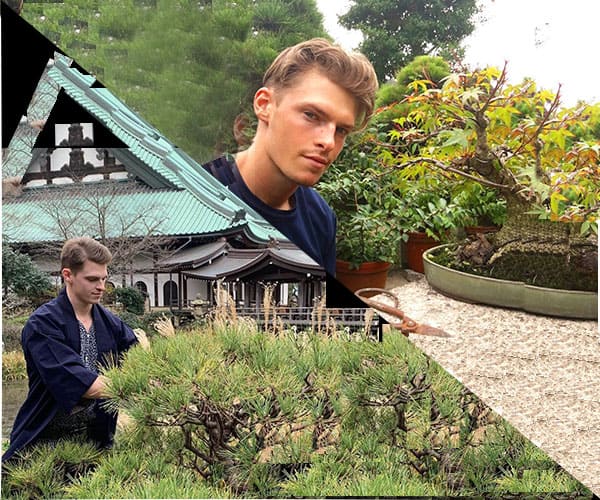
He entered the world of landscaping at the age of 23 and, with the encounter of his master, has been on a journey to perfect his craft, with a strong desire to convey the unique Japanese aesthetic and preserve Japanese gardens. He has been living in Japan for about 15 years. I asked him how he feels about the beauty of Japan.
“What I always think is great about Japan is its flexibility. It’s the ability to quickly respond and adapt to new things.
It’s about making improvements and transforming them into something of our own. I believe there’s a spirit of hospitality at the core of this.
It’s about considering others and striving to do what’s best for them. Historically, I think this spirit is deeply rooted in Japan. That’s what I really like.”
Is he into Kominka(Old Japanese-style house)?
Since 2020, he has been living in a house that is about 60 years old. It’s a one-story house with a spacious garden, a rental property.
“I’m not sure of the exact definition of an old house, but since it’s about 60 years old, I call it an ‘old house’ on purpose.”
He has been customizing his home to make it more comfortable, much like a DIY project. Recently, he reported on his YouTube channel that he completed a relaxing Japanese-style deck.
“Rather than making something new or remodeling, the idea is to respect the old while using and repairing it carefully.
This applies to both the house and furniture. When something breaks, I imagine reshaping it to fit me better. For example, I transformed the broken ‘nure-en’ at home into a Japanese-style deck, incorporating modern elements into the Japanese base.”
“I really like the ‘tokonoma’ (alcove), and I decorate it with seasonal items. I think valuing the seasons is an essential part of Japanese culture.
The ‘tokonoma’ represents that. For example, if it’s now summer, I’ll display something with a summer motif. Having a welcoming space for guests when you invite them is a wonderful concept.”
“The ‘irori’ (hearth) table was popular in the early to mid-Showa era, I believe. It uses large tree trunks like logs, so you can feel the Japanese atmosphere and the natural origin of the materials.”
He enjoys ikebana (flower arranging), which is related to his profession as a gardener.
“I don’t always have ikebana arrangements, but I arrange flowers when I find it interesting or when guests come over. Ikebana and landscaping are deeply connected in terms of balance, natural arrangement, and the use of space.
My master, Gou Kato, always told me, ‘You should do ikebana.’ It’s a great learning experience, and I feel a connection between the two. However, I don’t keep items that might be troublesome for my mischievous cat, Mebuki, in the tokonoma (laughs).”
He has experienced marriage and divorce in the past, and is currently single. So his present partner is a female calico cat named Mebuki-chan.
What’s great about Japan is its flexibility
The house’s traditional design means it can be cold in winter and hot in summer. However, he views this as part of the richness of experiencing the changing seasons in Japanese living.
“That’s the fundamental design (laughs). It’s an old-fashioned wisdom that considers airflow for humidity control, so there are many gaps.

Naturally, there are some aspects that might make it less comfortable compared to more modern houses, given the advanced construction techniques nowadays.
But I don’t see that as a disadvantage; rather, I embrace it as part of the charm. The most challenging time, though, is during the rainy season when the humidity is high. So far this year, there hasn’t been much rain, so it’s been okay.”
Regarding his future as an actor
“If I have the opportunity, I would definitely like to take on acting roles. Of course, each role has its own setting, but I want to infuse my own unique qualities into the characters I play and pursue a flavor that only I can bring. I will continue to improve my acting skills even further and work hard.”
In conclusion, he has a wonderful muscle, a wonderful smile, and a wonderful cat lover side.
He is expected to excel as a gardener, as an actor, and in bodybuilding competitions.
we can only wish Tatsuma Murasame the best in his future endeavors, believing in his passion and skills as he continues to make his mark in Japanese society.
Thanks for visiting here.

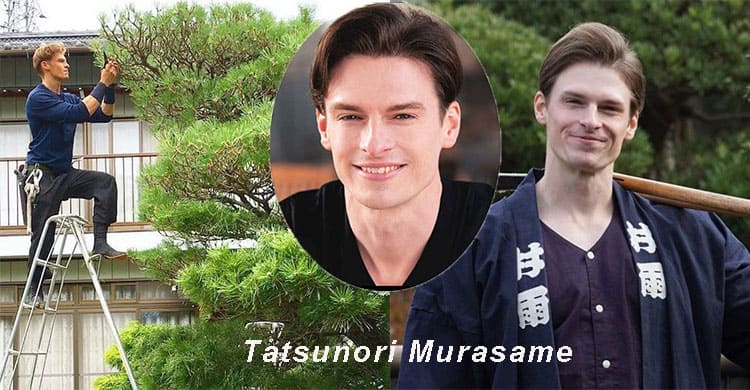





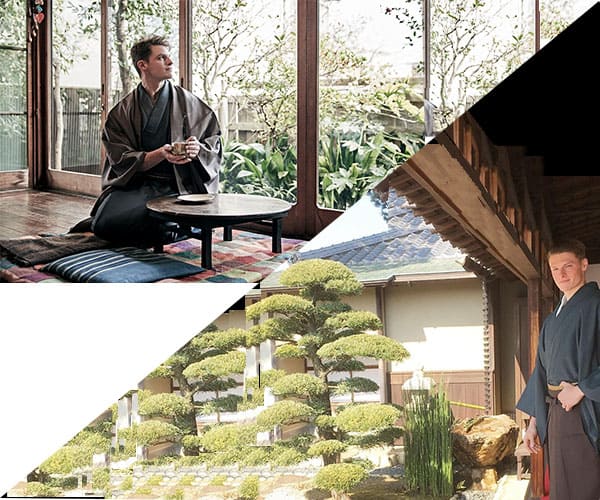
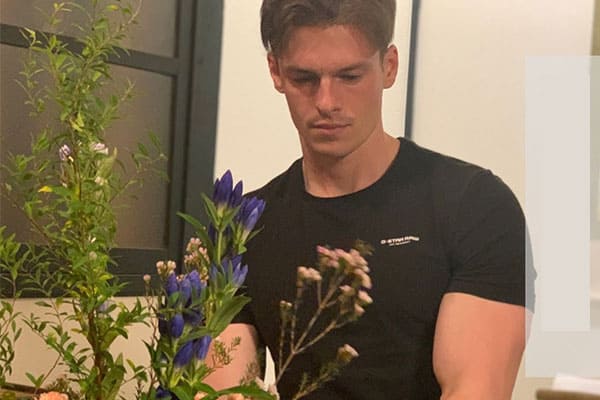
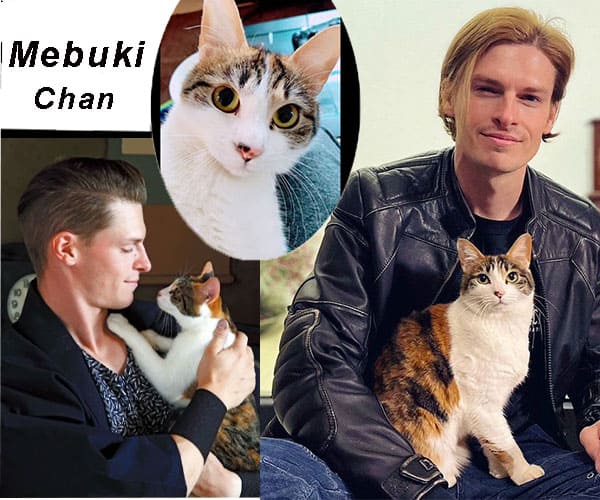

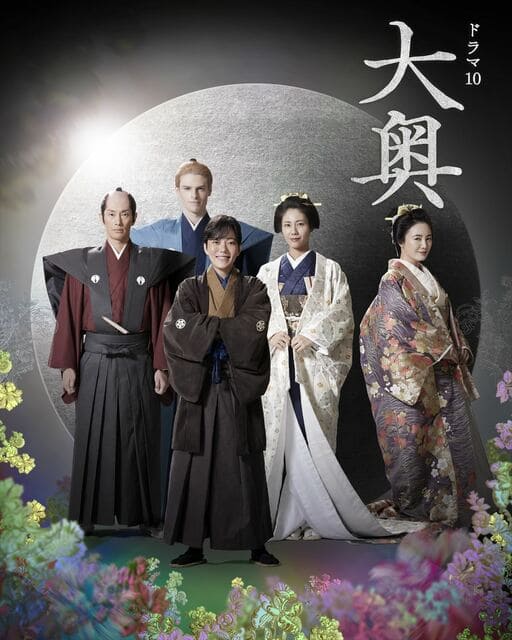


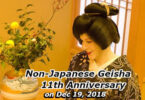



Leave a Comment